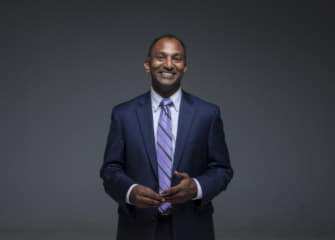
Thiru Vignarajah
By Thiru Vignarajah
This is not the first time Maryland is poised to authorize an industry that will generate tens of millions in tax revenue earmarked for education and, at the same time, make a class of investors extraordinarily rich. First it was casinos. Then, medical marijuana. The latest goldrush is sports betting, as investors line up for licenses to operate in a market with high margins and little risk.
Each time, state legislators preened about their commitment to equity. Then they shamelessly put in place a regulatory scheme that shut out people of color. The first time could have been chalked up to ignorance of the risk, the second time to inexperience with reality. But what excuse, given the national focus on racial equity, will a legislature controlled by Democrats give when the usual suspects again end up with the lion’s share of wealth created by sports betting and Black and Brown investors are left with the scraps that fall from the table?
Yet, this is exactly what is likely to happen. The first dozen “Class A” in-person sports betting licenses are already slated for Maryland’s six casinos, three sports stadiums, two racetracks and a riverboat. Too bad there aren’t two more for Jeff Bezos and Elon Musk.
Draft legislation for mobile licenses, which will generate 85 percent of overall revenue, is no better. The House bill, HB 940, provides a total of 15 online licenses but gives no incentive for an applicant to partner with an investor of color in seeking one of these coveted licenses. The Senate committee bill proposes unlimited mobile licenses but allows candidates that partner with a certified minority business enterprise (MBE) to jump to the front of the queue.
Neither of these plans is adequate if Maryland wants to avoid its past mistakes. If there are limited licenses but no provision for minority participation (the House approach), Maryland’s casino, racetrack, and sports oligarchs will inevitably win the licenses and enjoy state-sponsored exclusivity in the new market.
If there are unlimited licenses and the only cost to applying alone is a one-time delay to market (the Senate approach), national behemoths like DraftKings and FanDuel will bid their time, enter late with a scorched-earth marketing strategy, and dominate the industry within a year. Under this scenario, MBEs will be stuck with a few pricey licenses and the tiniest slice of the pie.
If we are serious about economic equity, our sports betting laws should embody this commitment. Start with a limited number of mobile licenses but give precedence to applicants with a bona fide MBE partner with a 29% equity interest or more. Perhaps the minimum stake should be even higher, but a 29% MBE goal has been part of Maryland law since 2013 and has never been successfully challenged.
A cap on licenses would put pressure on even the largest applicants to secure a substantial investor of color or risk missing out completely. And preferencing applicants with diverse equity partners would mean MBEs would not just get the occasional procurement contract or a fixed fee each year but would earn a real share of the profits instead.
Discourse about America’s racial wealth gap must be about both the indigent and the affluent. Maryland is setting up a monopoly for the ultra-rich and deciding who gets to play. Currently there are some 615 billionaires in the United States—only seven are Black. If this proportion is ever to change, we had better address not just minority contracts and minimum wages but also the inequities of how we shape industries that will create the next round of millionaires and billionaires.
Thiru Vignarajah previously served as deputy attorney general of Maryland and was a law clerk to Justice Stephen Breyer and president of the Harvard Law Review. He ran for Mayor of Baltimore in the Democratic primary in 2020.


































